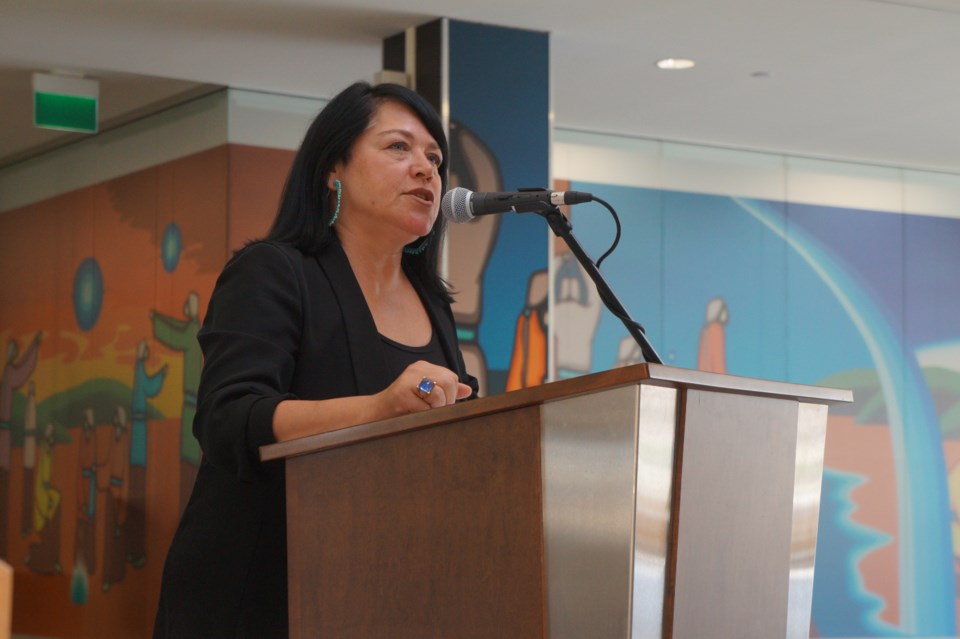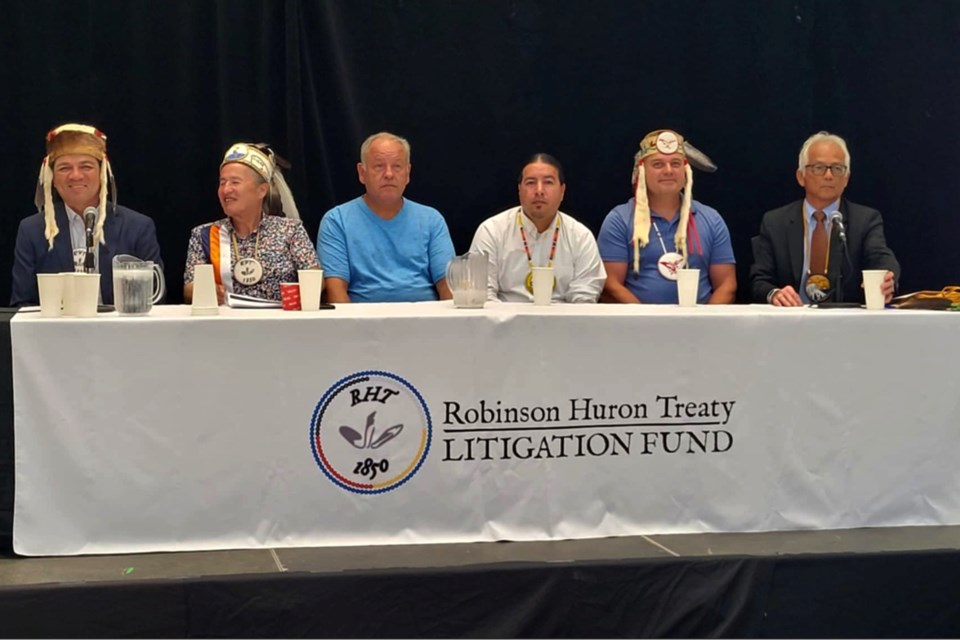This article was first published by Sudbury.com, a Village Media publication.
Hosted in the same hall as the announcement of the $10-billion settlement, the Robinson Huron Treaty Litigation Team gathered July 29 at Laurentian University to discuss the recent decision from the Supreme Court of Canada, the result of an appeal by the Ontario government.
“Now they (Canada and Ontario) understand that we are equals,” said Gimaa Angus Toulouse of Sagamok Anishnawbek First Nation, of the decision.
“And they will need to move forward that way.”
Ten years ago the Robinson Huron Treaty Litigation Team (RHTLF) initiated court action against Canada and Ontario for failing to live up to the annuities clause in the Robinson Huron Treaty and the legal actions were split into three stages. At Stage One, the treaties were interpreted; at Stage Two, the Crown’s defence of immunity and limitations were addressed, and; at Stage Three, remaining issues, including financial remedies, were to be addressed.
Stage Three of the trial began in February of last year, but a $10 billion settlement was reached with Robinson-Huron signatory members in June, 2023, ahead of this decision.
In the July 25 decision, based on a hearing from November, 2023, the nation’s highest court found that while Ontario has the discretion to increase annuities under the Robinson treaties, “if the Crown can increase the annuities beyond $4 to each individual, it must exercise its discretion and decide whether to do so and, if so, by how much,” wrote Justice Mahmud Jamal in the unanimous decision. “This discretion is not unfettered; it must be exercised liberally, justly, and in accordance with the honour of the Crown. The frequency with which the Crown must consider whether it can increase the annuities must also be consistent with the honour of the Crown.”

David Nahwegahbow, the legal team member who argued the case, said at the press conference the decision was a “strong endorsement of the treaty,” and called the findings “unprecedented.”
“Treaty rights are now enforceable, constitutional rights,” he said.
He said a key win was that Ontario felt the augmentation clause was not “justiciable,” not enforceable by the courts. This decision states this is not the case.
There is also the “duty of diligent implementation” which means that courts can review both all aspects of the Crown's actions to ensure they are “consistent with the honor of the Crown (Ontario).”
But Nahwegahbow said the single most important aspect of the decision is that “it confirms what the Anishnawbek have always known: that the treaty is an alliance of equals, and that it must be implemented in a manner based on mutual respect and mutual interdependence, with proper regard for Anishnaabe law.”
He said just as the original treaty was to renew a relationship between settlers and Ansihnaawbe, this lawsuit was to “renew and restore the treaty relationship which has suffered for over a century from the Crown's neglect.”
But what about the future?
Sudbury.com asked Toulouse if there was fear of negotiating future annuities with upper levels of government, considering the Supreme Court said in its decision that Ontario and Canada showed “shocking” dishonour in its duties under the treaty and both governments “made a mockery” of the treaties.
“Now they understand that we are equals, and they will need to move forward that way,” said Toulouse.
He said throughout the court process, beginning in 2014, the RHTLF asked the governments to settle. “But it wasn’t until we provided the kind of evidence that they needed to understand that we are equals, and that the treaty was centered on a sacred promise to share the wealth, that they signalled that willingness,” he said.
He hopes that willingness to compromise with equals will continue into the future.
For the Robinson Huron Treaty people, the per capita payments resulting from the $10 billion settlement is about to begin; however, a July 30 court hearing could change that, with Atikameksheng Anishnawbek and Garden River First Nations challenging the RHTLF legal fees in a Toronto court. Sudbury.com will have coverage of the hearing.
Jenny Lamothe is a reporter with Sudbury.com.




